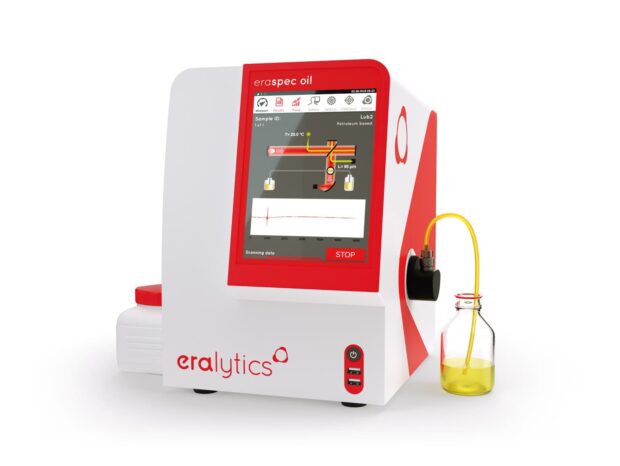Standard Test Method for Base Number of Petroleum Products by Potentiometric Perchloric Acid Titration.
Get more information about the standard at ASTM D2896-21.
ASTM D2896-21 specifies a test method to determine the base number (BN) of petroleum products and lubricants using potentiometric titration with perchloric acid. The base number indicates the product’s ability to neutralize acidic by-products, which is essential for protecting engines and machinery from corrosion and wear during operation. By following ASTM D2896, manufacturers, laboratories, and operators can ensure that lubricants and fuels perform effectively, reducing maintenance costs, preventing equipment failure, and enhancing operational reliability.
Details
The ASTM D2896 test method measures the alkalinity of petroleum products and lubricants. The base number reflects the concentration of alkaline additives, such as detergents and dispersants, that neutralize acids formed during the combustion of fuel or the oxidation of lubricants. Key aspects of the method include:
- Test Principle: The sample is dissolved in a solvent and titrated with a standardized solution of perchloric acid. A potentiometric electrode detects the equivalence point, providing a precise measurement of the base number.
- Range: The method is suitable for base numbers typically ranging from 1 to 300 mg KOH/g, making it applicable to a wide variety of lubricants and fuels.
- Accuracy: Potentiometric titration offers a high level of accuracy and reproducibility compared to other titration methods.
- Sample Types: This method applies to lubricating oils, engine oils, and additives, both fresh and used.
Industries and Applications
ASTM D2896 plays a crucial role in various industries where the quality and performance of lubricants and fuels are critical:
- Automotive: Engine oils for cars, trucks, and heavy-duty vehicles rely on base number testing to ensure protection against acid-induced corrosion and wear
- Marine: Lubricants used in ship engines must meet BN specifications to handle the high sulfur content of marine fuels
- Power generation: Gas turbines and stationary engines in power plants require lubricants with sufficient alkalinity to prevent acidic corrosion
- Oil and gas: Base number analysis ensures the performance of lubricants used in drilling, extraction, and refinery equipment
- Industrial machinery: Equipment used in manufacturing and processing industries benefits from lubricants tested for adequate base number levels
